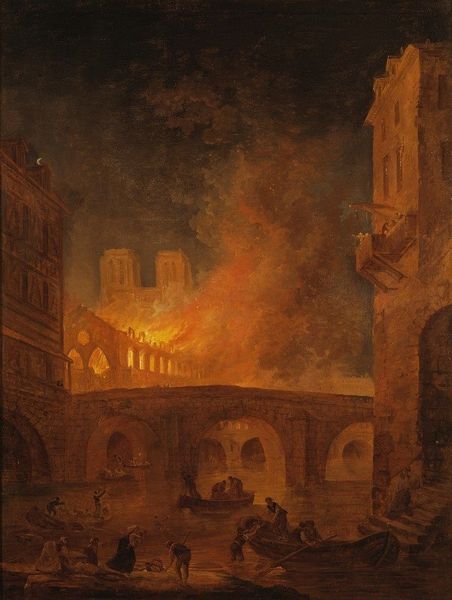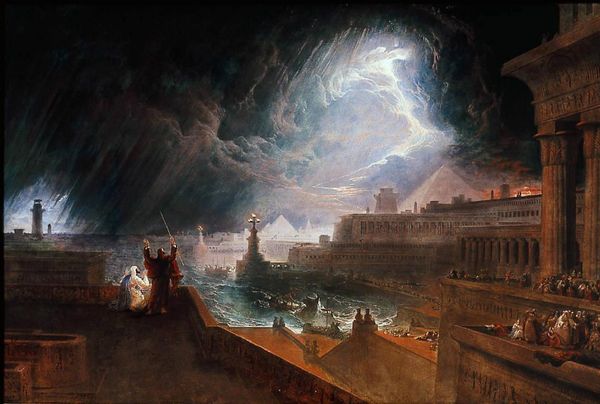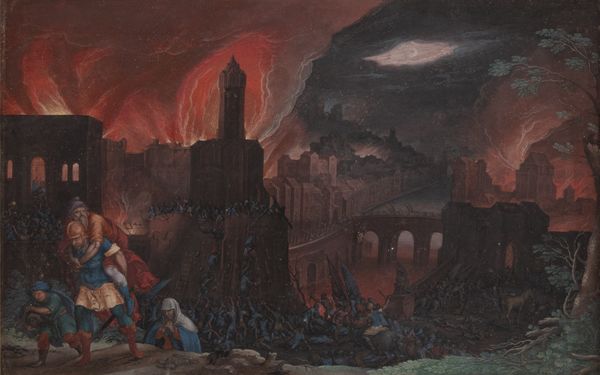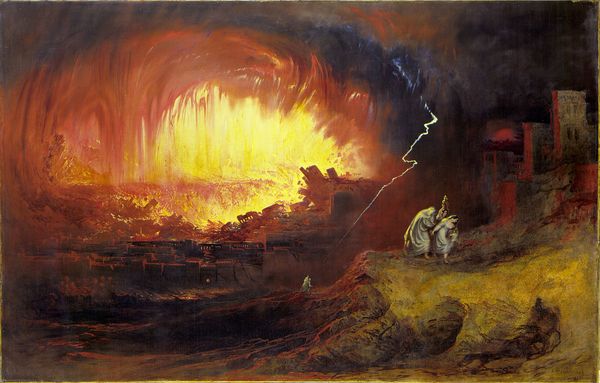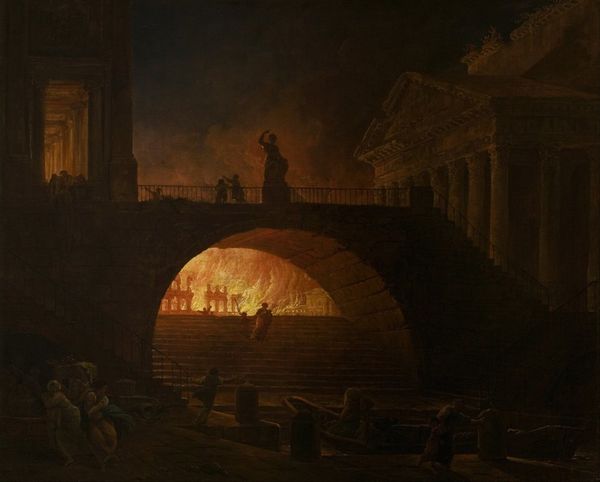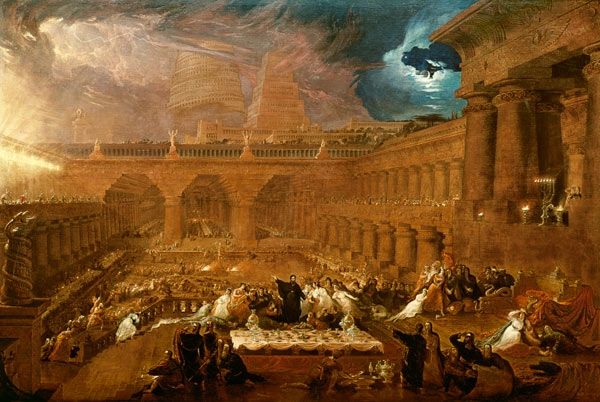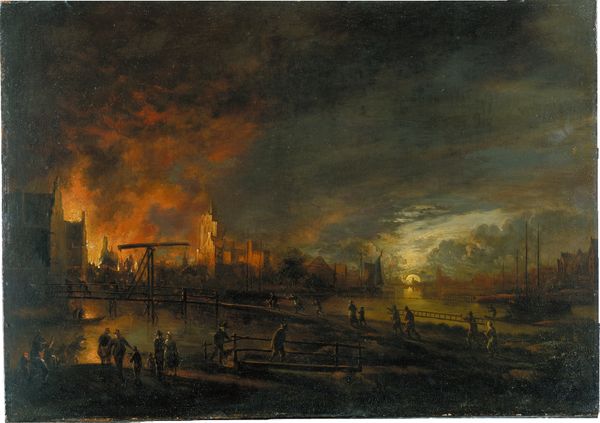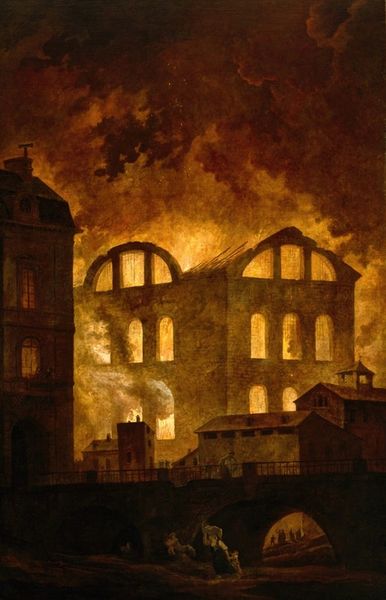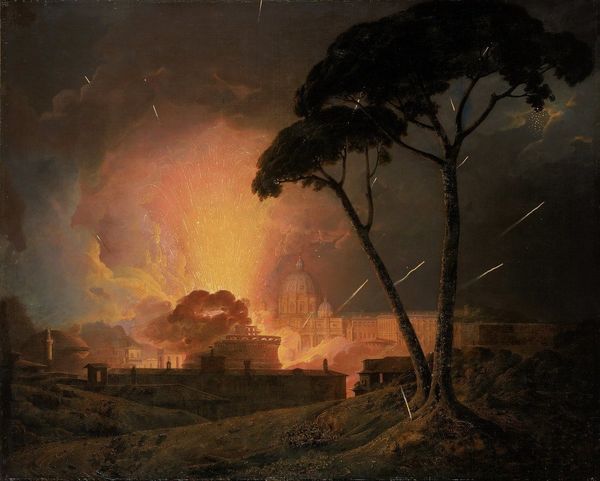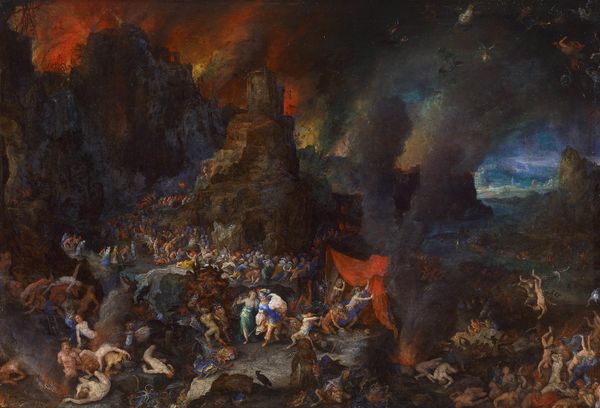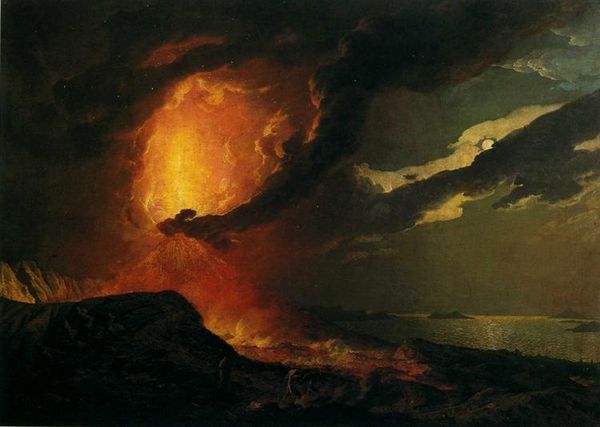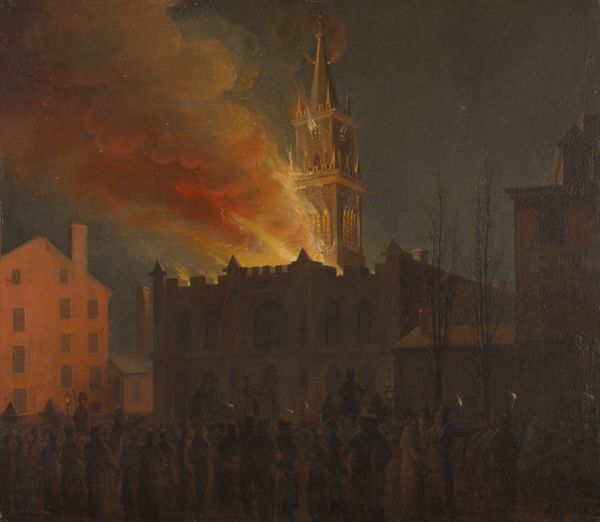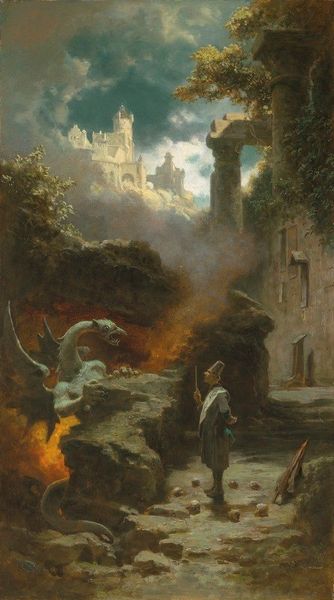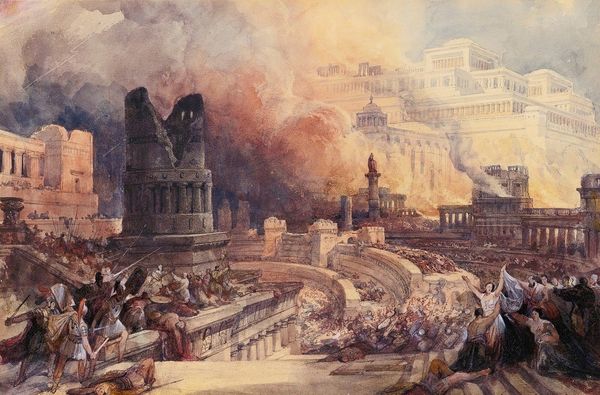
painting, oil-paint
#
narrative-art
#
fantasy art
#
painting
#
oil-paint
#
landscape
#
fantasy-art
#
geometric
#
romanticism
#
cityscape
#
history-painting
#
sublime
Copyright: Public domain
Editor: This is John Martin’s *Pandemonium*, painted in 1825. It’s an oil painting depicting what looks like a fiery cityscape. The scene is quite overwhelming, almost apocalyptic. What do you see in this piece? Curator: *Pandemonium* isn’t just an apocalyptic fantasy; it's a product of its time. The Industrial Revolution deeply impacted artists. Do you see the immense scale, the geometric precision juxtaposed with the chaotic sea of lava? This is Romanticism grappling with industrialization's impact, visualizing a powerful and disturbing force. Consider also its context within British imperialism: How might Martin's vision of hell relate to the socio-political landscape of his era, the exploitation of resources and people, or even the expanding factories in industrial cities like London or Manchester? Editor: That's interesting. I was mostly focusing on the literary aspect, the connection to Milton’s Paradise Lost. Curator: Absolutely, Milton is key! But why do you think Martin chose this specific scene from *Paradise Lost*? Was it simply illustrative, or was he drawn to something more profound? Think about the politics embedded in Milton’s text – rebellion, the questioning of authority. Martin translates this onto the canvas, presenting a vision that questions established power structures. Notice also how small and insignificant the figures appear against the backdrop of this monumental architecture – another way of subverting conventional notions of heroism and power. Editor: So, it’s more than just hell; it’s a commentary on the societal anxieties of the time. Curator: Exactly. It becomes a powerful critique of emerging industrial society and potentially even imperial ambition. Martin uses religious and literary narratives as vehicles to reflect these concerns. The scale suggests both terror and a terrible beauty—it demands that we face our fears regarding power and its implications. Editor: I never considered that! It makes me look at it from a totally different angle. Thank you for offering this critical view. Curator: And thank you for asking thought-provoking questions; seeing art through multiple lenses makes it that much richer.
Comments
No comments
Be the first to comment and join the conversation on the ultimate creative platform.
